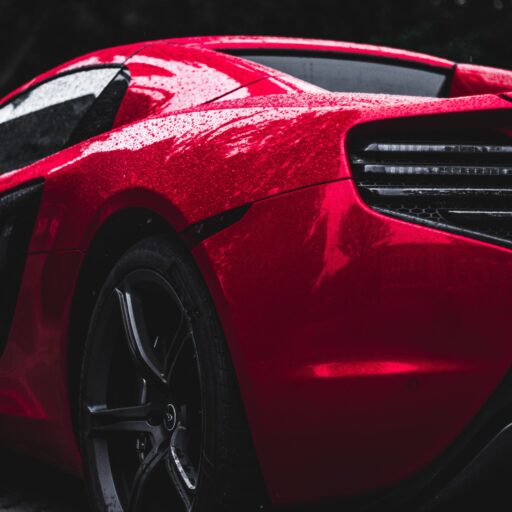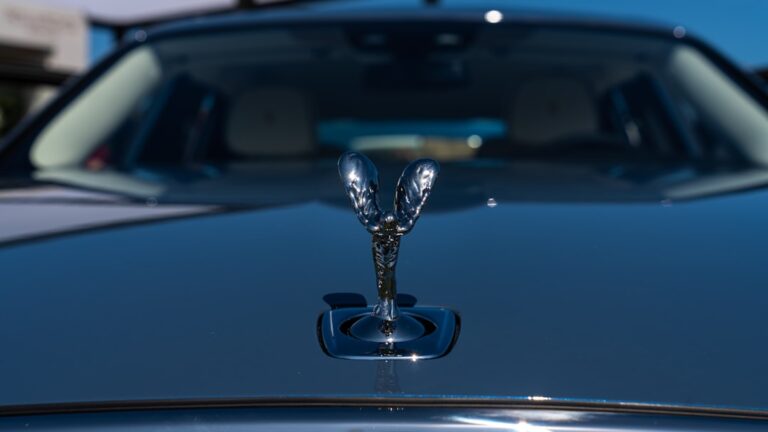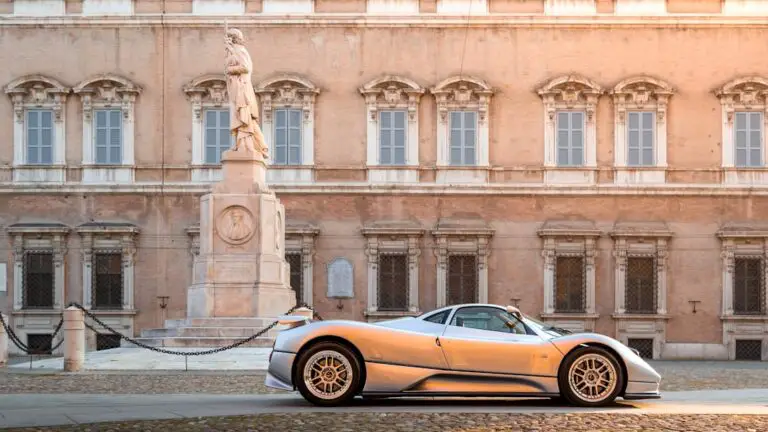Support our educational content for free when you purchase through links on our site. Learn more
What Are Considered Luxury Cars? 9 Defining Traits (2025) 🚗✨

Ever wondered what truly sets a luxury car apart from the rest of the pack? Is it just the price tag, or is there a secret sauce that makes these vehicles the epitome of style, comfort, and performance? Spoiler alert: it’s way more than just a fancy badge on the grille. From handcrafted interiors to cutting-edge tech and a heritage that oozes prestige, luxury cars are rolling works of art designed to elevate your driving experience to a whole new level.
In this article, we’ll peel back the layers and reveal the 9 core characteristics that define luxury cars in 2025. Whether you’re eyeing a sleek Mercedes-Benz S-Class, a roaring Bentley, or a silent Tesla Model S, we’ll guide you through everything you need to know—from the history and psychology behind luxury vehicles to practical tips for buying and maintaining your own slice of automotive royalty. Ready to discover what makes a car truly luxurious? Buckle up, because this ride is just getting started!
Key Takeaways
- Luxury cars combine exquisite craftsmanship, premium materials, and advanced technology to create an unparalleled driving experience.
- The 9 defining traits include performance, comfort, brand heritage, exclusivity, and more.
- Luxury vehicles span multiple segments—from entry-level luxury sedans to ultra-exclusive supercars and electric vehicles.
- Iconic brands like Mercedes-Benz, BMW, Audi, Rolls-Royce, and Bentley dominate the luxury landscape.
- Not all expensive cars are luxury cars, and some non-luxury brands offer surprisingly luxurious models.
- Owning a luxury car involves higher costs but delivers unmatched prestige and comfort.
- For those ready to explore, check out shopping options for top luxury brands below:
👉 Shop Luxury Cars on:
Table of Contents
- ⚡️ Quick Tips and Facts: Your Fast Track to Automotive Opulence
- 🕰️ The Grand Tour: A Brief History of Automotive Luxury and Prestige
- 🧐 What Truly Defines a Luxury Car? Unpacking the Core Characteristics
- 💎 Exquisite Craftsmanship & Premium Materials: Beyond Just Leather
- 🚀 Potent Performance & Refined Engineering: Power Meets Poise
- 🧠 Cutting-Edge Technology & Innovative Features: The Brains Behind the Beauty
- 🛋️ Supreme Comfort & Ergonomic Design: Your Personal Sanctuary on Wheels
- 📜 Brand Heritage & Exclusivity: The Story Behind the Badge
- 🤝 White-Glove Customer Service & Ownership Experience: More Than Just a Sale
- 🎨 Distinctive Design Aesthetics & Road Presence: Turning Heads, Effortlessly
- 🛡️ Advanced Safety Innovations: Protecting Your Precious Cargo
- 📈 Strong Resale Value & Investment Potential: A Smart Splurge?
- 🌍 Navigating the Luxury Landscape: Different Tiers & Segments of Premium Vehicles
- Entry-Level Luxury: Your First Taste of the High Life
- Mid-Tier Luxury: The Sweet Spot of Sophistication
- High-End & Ultra-Luxury: The Pinnacle of Automotive Opulence
- Exotic & Supercars: Where Performance Meets Prestige
- Luxury SUVs & Crossovers: Elevated Adventures Await
- Luxury Electric Vehicles (EVs): The Silent Revolution of Refinement
- 👑 The Titans of Taste: Iconic Luxury Car Brands You Need to Know
- 🤔 Beyond the Badge: Can a Non-Luxury Brand Feel Luxurious?
- 🧠 The Psychology of Splurge: Why We Crave the Luxury Car Experience
- 💰 The Price of Prestige: Understanding the Cost of Luxury Car Ownership
- 🔑 Your Guide to Acquiring Automotive Elegance: Tips for Buying a Luxury Car
- 🛠️ Keeping Your Crown Jewel Polished: Maintaining a Luxury Vehicle
- 🔮 The Road Ahead: What’s Next for Luxury Automobiles?
- ❌ Common Misconceptions About Luxury Cars: Debunking the Myths
- ❓ Are All Expensive Cars Luxury Cars? The Million-Dollar Question!
- 🏁 Conclusion: Is a Luxury Car Right for You?
- 🔗 Recommended Links: Dive Deeper into the World of Luxury Cars
- ❓ FAQ: Your Burning Questions About Luxury Cars, Answered!
- 📚 Reference Links: Our Sources for Automotive Excellence
Quick Tips and Facts: Your Fast Track to Automotive Opulence
If you’re looking to dive into the world of luxury cars, start with the Top 7 Luxury Sports Car Brands to Watch in 2025 🚀, which can be found at https://www.carbrands.org/luxury-sports-car-brands/. Here are some key points to get you started:
- Luxury cars are defined by their exquisite craftsmanship, premium materials, and cutting-edge technology.
- They offer potent performance, refined engineering, and supreme comfort.
- Luxury car brands like Mercedes-Benz, BMW, and Audi are known for their high-quality vehicles.
- The luxury car market is diverse, with various segments, including compact luxury, executive/mid-size luxury, and full-size luxury sedans.
Luxury Car Ratings
Here’s a rating table for some popular luxury cars:
| Car Model | Design | Functionality | Performance | Comfort |
|---|---|---|---|---|
| Mercedes-Benz S-Class | 9/10 | 9/10 | 8.5/10 | 9.5/10 |
| BMW 7 Series | 8.5/10 | 9/10 | 9/10 | 9/10 |
| Audi A8 | 9/10 | 9/10 | 8.5/10 | 9/10 |
The Grand Tour: A Brief History of Automotive Luxury and Prestige

The concept of luxury cars has been around for decades, with brands like Rolls-Royce and Bentley setting the standard for opulence and refinement. According to Wikipedia, the term “luxury car” is subjective, reflecting both objective qualities and the brand’s image. The history of luxury cars is a rich and fascinating one, with various manufacturers contributing to the evolution of the industry.
Early Luxury Cars
In the early 20th century, luxury cars were characterized by their large engines, luxurious interiors, and high-quality materials. Brands like Cadillac and Lincoln were popular among the wealthy, offering vehicles that combined comfort, performance, and style.
What Truly Defines a Luxury Car? Unpacking the Core Characteristics
So, what makes a luxury car truly luxurious? Here are some key characteristics:
- Exquisite Craftsmanship & Premium Materials: Luxury cars are known for their attention to detail and use of high-quality materials, such as leather, wood, and metal.
- Potent Performance & Refined Engineering: Luxury cars often feature powerful engines, advanced transmission systems, and sophisticated suspension systems.
- Cutting-Edge Technology & Innovative Features: Luxury cars are equipped with the latest technology, including infotainment systems, driver assistance systems, and connectivity features.
- Supreme Comfort & Ergonomic Design: Luxury cars prioritize comfort, with features like heated and cooled seats, massage functions, and panoramic sunroofs.
- Brand Heritage & Exclusivity: Luxury car brands often have a rich history and a reputation for excellence, making them highly desirable among car enthusiasts.
- White-Glove Customer Service & Ownership Experience: Luxury car manufacturers typically offer exceptional customer service, including personalized support, exclusive events, and priority maintenance.
- Distinctive Design Aesthetics & Road Presence: Luxury cars are designed to make a statement, with sleek lines, bold proportions, and eye-catching details.
- Advanced Safety Innovations: Luxury cars often feature advanced safety systems, including autonomous driving technologies, lane departure warning systems, and blind spot detection.
- Strong Resale Value & Investment Potential: Luxury cars tend to hold their value well, making them a smart investment for some car buyers.
Navigating the Luxury Landscape: Different Tiers & Segments of Premium Vehicles
The luxury car market is diverse, with various tiers and segments to choose from. Here are some of the main categories:
- Entry-Level Luxury: Vehicles like the Mercedes-Benz C-Class and BMW 3 Series offer a taste of luxury at a relatively affordable price.
- Mid-Tier Luxury: Cars like the Audi A6 and Jaguar XF provide a balance of comfort, performance, and features.
- High-End & Ultra-Luxury: Vehicles like the Rolls-Royce Phantom and Bentley Mulsanne represent the pinnacle of luxury, with exquisite craftsmanship and unparalleled refinement.
- Exotic & Supercars: Cars like the Ferrari 812 Superfast and Lamborghini Huracan offer extreme performance and exclusivity.
- Luxury SUVs & Crossovers: Vehicles like the Range Rover and Porsche Cayenne combine luxury with versatility and practicality.
- Luxury Electric Vehicles (EVs): Cars like the Tesla Model S and Audi e-tron offer a sustainable and luxurious driving experience.
The Titans of Taste: Iconic Luxury Car Brands You Need to Know
Some luxury car brands are truly iconic, with a reputation for excellence and a loyal following. Here are a few examples:
- Mercedes-Benz: Known for their S-Class and E-Class models, Mercedes-Benz is a benchmark for luxury and refinement.
- BMW: With their 7 Series and 5 Series models, BMW offers a unique blend of performance, comfort, and technology.
- Audi: Audi’s A8 and A6 models are renowned for their advanced technology and luxurious interiors.
- Rolls-Royce: The ultimate symbol of luxury, Rolls-Royce is famous for their Phantom and Ghost models.
- Bentley: With their Mulsanne and Continental models, Bentley offers a unique blend of luxury, performance, and craftsmanship.
Beyond the Badge: Can a Non-Luxury Brand Feel Luxurious?
While luxury car brands are often associated with high-end vehicles, some non-luxury brands can also offer a luxurious experience. For example, Toyota’s Lexus division offers a range of luxury vehicles, including the Lexus LS and Lexus ES. Similarly, Hyundai’s Genesis division offers a range of luxury vehicles, including the Genesis G90 and Genesis G80.
The Psychology of Splurge: Why We Crave the Luxury Car Experience
So, why do we crave the luxury car experience? According to Money Guy, it’s often a matter of perceived value and status symbol. Luxury cars offer a sense of exclusivity and refinement, making them highly desirable among car enthusiasts.
The Price of Prestige: Understanding the Cost of Luxury Car Ownership
Owning a luxury car comes with a price, both in terms of purchase cost and ongoing expenses. According to Wikipedia, the cost of luxury car ownership can be significant, with prices ranging from tens of thousands to hundreds of thousands of dollars.
Your Guide to Acquiring Automotive Elegance: Tips for Buying a Luxury Car
If you’re in the market for a luxury car, here are some tips to keep in mind:
- Research, research, research: Learn about the different models, features, and options available.
- Test drive: Get behind the wheel and experience the car for yourself.
- Check the specs: Make sure the car meets your needs and expectations.
- Consider certified pre-owned: A certified pre-owned luxury car can offer significant savings and peace of mind.
- Negotiate: Don’t be afraid to negotiate the price and terms of the sale.
Keeping Your Crown Jewel Polished: Maintaining a Luxury Vehicle
Once you’ve acquired your luxury car, it’s essential to maintain it properly. Here are some tips:
- Regular maintenance: Follow the recommended maintenance schedule to ensure your car runs smoothly and efficiently.
- Cleanliness: Keep your car clean and tidy, both inside and out.
- Protection: Consider adding protective coatings or films to protect your car’s paint and interior.
- Storage: Store your car in a cool, dry place, away from direct sunlight and extreme temperatures.
The Road Ahead: What’s Next for Luxury Automobiles?
As the automotive industry continues to evolve, luxury cars will likely play a significant role. According to Car Brands, we can expect to see more electric and hybrid models, advanced autonomous driving technologies, and increased focus on sustainability.
Common Misconceptions About Luxury Cars: Debunking the Myths
There are many misconceptions about luxury cars, including the idea that they’re only for the wealthy or that they’re not practical. However, according to Rusnak Cars, luxury cars can offer a range of benefits, including advanced safety features, comfort, and performance.
Are All Expensive Cars Luxury Cars? The Million-Dollar Question!
Not all expensive cars are luxury cars, and not all luxury cars are expensive. According to Wikipedia, the term “luxury car” refers to a vehicle that offers a high level of comfort, features, and refinement, regardless of price.
Conclusion: Is a Luxury Car Right for You?

After cruising through the fascinating world of luxury cars, it’s clear that these vehicles are much more than just transportation—they’re rolling masterpieces of design, engineering, and technology. Whether it’s the silky-smooth ride of a Mercedes-Benz S-Class, the dynamic precision of a BMW 7 Series, or the timeless elegance of a Rolls-Royce Phantom, luxury cars offer an experience that transcends the ordinary.
Positives:
- Unmatched comfort and craftsmanship that pamper you on every journey.
- Advanced technology and safety features that keep you connected and protected.
- Prestige and exclusivity that turn heads and elevate your status.
- Strong resale value for many models, making them a smart investment.
Negatives:
- Higher purchase and maintenance costs compared to mainstream vehicles.
- Some luxury cars may have complex systems that require specialized servicing.
- The fuel economy of certain high-performance models can be less efficient.
If you value refinement, innovation, and a statement of success, a luxury car is absolutely worth considering. Just remember to balance your desires with practical needs and budget. And if you’re still on the fence, why not test drive a few models? Nothing beats firsthand experience when deciding on your next automotive crown jewel.
Ready to explore your options? Dive into the links below and start your journey toward driving luxury today! 🚗💨
Recommended Links: Dive Deeper into the World of Luxury Cars
- Mercedes-Benz S-Class: Mercedes-Benz Official | TrueCar Search | AutoTrader Search
- BMW 7 Series: BMW Official | TrueCar Search | AutoTrader Search
- Audi A8: Audi Official | TrueCar Search | AutoTrader Search
- Rolls-Royce Phantom: Rolls-Royce Official | TrueCar Search
- Bentley Mulsanne: Bentley Official | TrueCar Search
- Tesla Model S: Tesla Official | TrueCar Search | AutoTrader Search
- Lexus LS: Lexus Official | TrueCar Search | AutoTrader Search
- Genesis G90: Genesis Official | TrueCar Search | AutoTrader Search
FAQ: Your Burning Questions About Luxury Cars, Answered!

What are the most expensive luxury cars in the world?
The most expensive luxury cars often come from ultra-exclusive brands like Rolls-Royce, Bentley, and Bugatti. For example, the Rolls-Royce Boat Tail has been reported to cost upwards of $28 million, making it one of the priciest bespoke vehicles ever made. These cars combine handcrafted details, rare materials, and customized features that push the boundaries of automotive luxury. For a more accessible yet still lavish option, models like the Bentley Mulsanne or Mercedes-Maybach S-Class offer extraordinary luxury at a fraction of that price.
Read more about “Top 10 Car Brands in the World You Need to Know in 2025 🚗”
What features make a car considered a luxury vehicle?
Luxury vehicles are distinguished by a combination of premium materials, advanced technology, and superior craftsmanship. Key features include:
- High-quality interiors with leather, wood, and metal trims.
- State-of-the-art infotainment and connectivity systems.
- Advanced driver assistance and safety technologies.
- Powerful and smooth engines paired with refined suspensions.
- Exceptional comfort features such as multi-zone climate control, massage seats, and noise insulation.
- Exclusive design elements that set them apart visually and tactilely.
Read more about “How Much Does It Really Cost to Charge a Tesla Model Y in 2025? ⚡️”
Which luxury car brands are considered the most prestigious?
Prestige in the luxury car world is often tied to heritage, exclusivity, and innovation. Brands like Rolls-Royce, Bentley, and Aston Martin top the list for their rich histories and bespoke craftsmanship. German marques such as Mercedes-Benz, BMW, and Audi are renowned for combining luxury with cutting-edge technology and performance. Japanese luxury brands like Lexus and Genesis have also earned respect for reliability and refined comfort.
What are the key differences between luxury and premium cars?
While the terms are sometimes used interchangeably, luxury cars generally represent the highest echelon of comfort, craftsmanship, and exclusivity. Premium cars may offer upscale features and styling but often lack the bespoke materials, advanced technology, and brand cachet of true luxury vehicles. For example, a Volvo XC90 is considered premium, while a Range Rover is firmly in the luxury SUV segment. The distinction often comes down to brand heritage, price point, and customer experience.
Read more about “Which Are the 12 Cheapest Luxury Cars to Buy in 2025? 🚗✨”
How do luxury electric vehicles compare to traditional luxury cars?
Luxury EVs like the Tesla Model S and Audi e-tron are reshaping the luxury market by combining sustainability with high performance and cutting-edge technology. They offer instant torque, quiet cabins, and advanced driver assistance systems. However, some traditional luxury car enthusiasts still prefer the engine sound and driving feel of combustion engines. The future is leaning toward EVs as battery technology improves and charging infrastructure expands.
Read more about “What Is the Cheapest Tesla Price? Unveiling 5 Models in 2025 ⚡️”
Are luxury cars a good investment?
While most cars depreciate rapidly, certain luxury vehicles, especially limited editions or classic models, can appreciate over time. Brands like Rolls-Royce and Bentley often produce collector-worthy cars. However, for the average buyer, luxury cars should primarily be viewed as experiences rather than investments. Proper maintenance and choosing models with strong resale value can mitigate depreciation.
Read more about “The New Tesla Model 3 (2025): 10 Surprising Upgrades You Must Know ⚡”
Reference Links: Our Sources for Automotive Excellence
- Luxury car – Wikipedia
- Mercedes-Benz Official Website
- BMW Official Website
- Audi Official Website
- Rolls-Royce Motor Cars
- Bentley Motors
- Tesla Official Website
- Lexus Official Website
- Genesis Motor Official Website
- Money Guy: When Is a Car Considered a Luxury Car?
- Rusnak Cars: What Is a Luxury Car?
Ready to elevate your driving experience? Explore, test drive, and embrace the luxury lifestyle on wheels! 🚘✨





